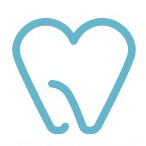Why do you need a dental cleaning?
Dental calculus, smoking stains, plaque, and discoloration on the teeth are not only unsightly but also easily lead to periodontal disease and bad breath. However, regular brushing cannot completely remove them, so it requires a dentist to use special instruments for dental cleaning.
What is dental calculus?
Dental plaque combines with calcium phosphate ions in saliva to form dental calculus, similar to the scale at the bottom of a kettle after boiling. Regardless of how well you brush your teeth, dental calculus will always form over time. However, different individuals have different situations, with some people forming more calculus and others less. For people with well-aligned teeth, they tend to brush relatively less, while those with misaligned teeth tend to have more calculus.
What equipment is used for dental cleaning?
There are three types of dental cleaning equipment: ultrasonic scaler, sandblasting scaler, and manual scaler. If there is only tartar, an ultrasonic scaler can be used. If there is less tartar and more stains, sandblasting scaler is recommended. If there are both tartar and stains, it is suggested to use both ultrasonic scaler and sandblasting scaler. For people with more subgingival tartar and poor periodontal condition, it is recommended to perform manual scaling one week after completing ultrasonic scaling, which can achieve better results.
Does dental cleaning damage teeth? Why do some people say dental cleaning is not good?
Dental cleaning causes very minimal damage to teeth. Compared to the importance of preserving dental health, this minor damage can be negligible, just like we don't worry that washing dishes will make them thinner. However, the method of dental cleaning is crucial. The selection of the dentist and dental assistant is also important. For ultrasonic scaling, the key is to control the angle between the ultrasonic scaler tip and the tooth surface and not to vibrate at the same spot for too long. In addition, the power of the scaler should be controlled, and the operator's gestures should be gentle. If the movements are rough, it may cause damage to the teeth.
Do I need to brush my teeth again after brushing them once?
Teeth are used every day, so they will get dirty again. Therefore, there is no such thing as a one-time solution. Even after brushing your teeth once, it is still necessary to have regular teeth cleaning.
How often should I have my teeth cleaned?
Generally, having your teeth cleaned every six months to a year is appropriate. The specific frequency should be based on individual oral conditions and the advice of a dental professional.
How long does it take to have a teeth cleaning?
A teeth cleaning usually takes between 40 minutes to 1 hour. The specific time depends on individual oral conditions, and a too short time is not appropriate.
Why do some people experience larger gaps between their teeth after a teeth cleaning?
People with healthy periodontal conditions usually do not have larger gaps between their teeth. When there is tartar on the teeth, the tartar will fill the gaps where gum tissue should grow. After removing the tartar, the gaps will naturally be exposed. Teeth are like big trees, and after removing the stones surrounding them, the gaps naturally become larger.
Why do some people experience tooth sensitivity after a teeth cleaning?
After tooth cleaning, the tartar is removed and the tooth roots are exposed. The tooth roots do not have enamel protection, so they may feel sour and painful. If a proper tooth cleaning is done, this condition usually does not last long and will disappear within a week. In addition, the degree of sourness and pain also depends on the condition of the individual's tooth neck. Approximately 60% of people have tooth necks covered by enamel, 30% have tooth necks partially covered by enamel and dentin, and 10% have complete separation between enamel and dentin. For the first case, the degree of sourness and pain is the lowest, while for the latter case, the degree is greater.
What should be paid attention to right after tooth cleaning?
In the period immediately after tooth cleaning, avoid eating hard foods and reduce consumption of hot or cold stimuli, allowing the teeth to adapt and relieve symptoms of looseness or sensitivity. (Specific precautions vary depending on individual circumstances. For those who have no discomfort during the cleaning process, there are generally no significant dietary concerns after tooth cleaning. However, it is important to avoid drinking acidic beverages such as cola, consuming colored food items, or smoking.
Does tooth cleaning cause illness?
As long as the dental equipment is thoroughly disinfected, there is no problem. However, if the operation is not standardized or the equipment is not disinfected, there will be certain risks.
Does teeth cleaning hurt? Will it bleed?
Teeth cleaning usually does not cause pain, but individual teeth may feel slightly sensitive. If there is any sensitivity, be sure to inform the dentist or assistant, and explain that the teeth are sensitive. The dentist has corresponding solutions, such as reducing the power of ultrasonic vibrations or using sandblasting or manual scraping methods. In general, the sensation of sensitivity can be avoided. If there is bleeding when brushing normally, it is very likely to bleed during teeth cleaning, the degree of bleeding is directly proportional to the amount of tartar and the degree of gingivitis.
What are the hazards of irregular teeth cleaning?
Tartar, tobacco stains, and plaque exist for a long time at the edge of the gums, which will produce a large number of bacteria and stimulate gingival inflammation, leading to bleeding, swelling, and bad breath. Furthermore, they will also damage the bone around the tooth roots, causing gum recession, loose teeth, and tooth loss.

